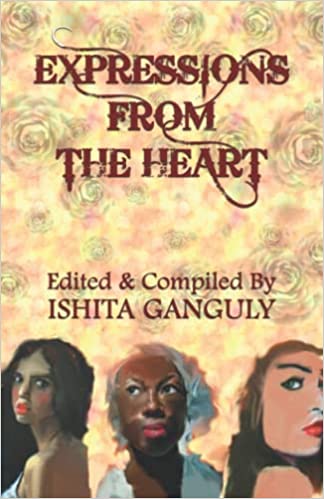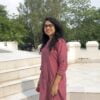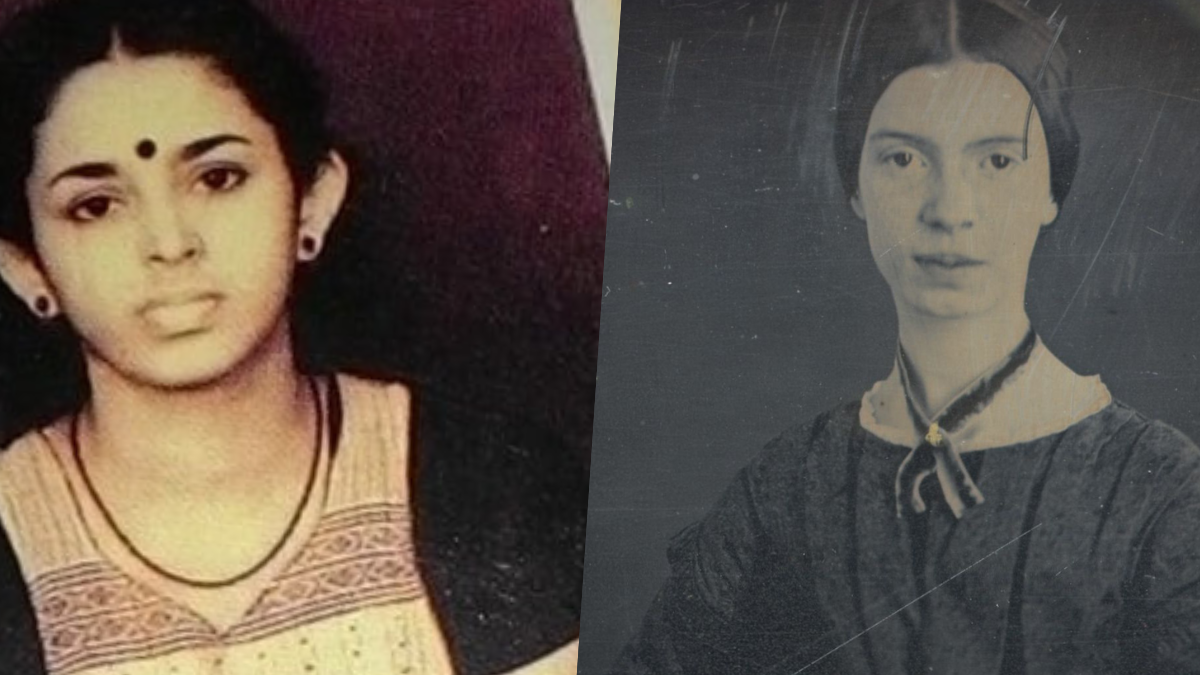A constellation of poets from across the world – 40 women from 15 countries to be precise – opens up a universe of heartfelt reminiscences in Expressions from the Heart, brought out by InkQuills Publishing House.
Ishita Ganguly, the editor of this one-of-a-kind anthology, shares tear-jerking lines on the dedication page. The person she is attempting to reunite with, through her words, is her father who is no longer with her.
The short stanza is a web of emotions and though the poet feels she is engulfed by darkness after the death of her guiding light, her words shine through. The verses hold up a mirror in which she sees her reflection, which looks similar to the one that ‘rests among the stars’.

For Ganguly, who is also the author of Stories from the City Called Kolkata, the under-representation of women writers is a grave concern, which is why more and more women should come forward and not hesitate to own the literary landscape, which seems to be dominated by the male canon.
The anthology, therefore, turns into a platform for women to showcase their work so that their voices are heard and words read. In her introduction to the collection, Ganguly writes, “Life is larger than poetry. But poetry lives longer than life.”
Ganguly’s poem, ‘The Sleeping River’, is not just about remembrances of things past but it also scrapes up bittersweet memories, tales of regrets, delayed apologies, and abrupt acts of disappearance by loved ones. The ‘sleeping river’ is a quiet witness to the poet’s outpouring of emotions. The river may be asleep, but is it silent? – the reader ponders.
The common thread running through the diverse voices of these poets from Australia, Bangladesh, Canada, Germany, Israel, Kenya, Montenegro, North Macedonia, Philippines, South Africa, Sri Lanka, Sweden, U.K, U.S.A, and India is the spirit to get up after falling and failing. In an honest recollection of their personal stories and embodied realities, signs of resilience, resurrection, and catharsis become recurring motifs
Cristina Munoz’s verse on grief is unique in the sense that within the turmoil and turbulence of life’s challenges, the poet is drawn to the “soothing winter light” which reminds us that amidst all gloom and doom, it is essential to shift our gaze to even the faintest flicker of light and be grateful for it.
Munoz’s poem echoes what Ursula K. Le Guin wrote a long time ago, “No darkness lasts forever. And even there, there are stars” (The Farthest Shore; Earthsea Cycle #3).
Setraj Jahan, a poet and an artist from Dhaka, Bangladesh, pens a moving poem on ownership. Jahan seeks some “lone time” in a fast-paced world, and wishes to ‘own’ the nights‘. Days do not hold much promise for the poet. It is the night that comes with the sweet declaration that all bitter and uncomfortable truths will eventually decline and diminish.
Loveleen Kaur expresses her protest against the stigma associated with menstruation and questions society’s parochial mindset which unjustly labels the woman as ‘impure’ during ‘those’ days of the month. Kaur, a student in Canada, paints the menstruating woman as a “wounded soldier” who is no less than a warrior and is, therefore, someone who deserves dignity and respect.
Kaur beautifully brings out the shades of a warrior, who is allowed to be wounded, in which case then, they must be cared for and shown compassion instead of being castigated.
Also read: Book Review: What Concerns Us By Laura Vogt, And The Importance Of Translating Women

The need for affirmation is highlighted by Diana Wiese in her poem titled, ‘August Night Sky’. Life is not a race, announces Wiese, who stays in Germany, and practices the art of storytelling through micro-memoirs and prose-poems.
In today’s world when everyone seems to be running like a headless chicken, Wiese advocates taking a pause and setting a pace according to our choice and capability. The act of mindless chasing doesn’t seem fruitful and it leads us nowhere. As Wiese writes, “There is no glory in being busy”.
It is clear that all these poets might be strangers to each other, but their stories mirror each other’s realities and ways of negotiating with a patriarchal world. Their refusal to give up is what brings them closer as they promise to lift each other while recognising the heterogeneity in their struggles and hardships and, in effect, staying away from universalising the voices of women from various corners of the world
The common thread running through the diverse voices of these poets from Australia, Bangladesh, Canada, Germany, Israel, Kenya, Montenegro, North Macedonia, Philippines, South Africa, Sri Lanka, Sweden, U.K, U.S.A, and India is the spirit to get up after falling and failing. In an honest recollection of their personal stories and embodied realities, signs of resilience, resurrection, and catharsis become recurring motifs.
Though these poems discuss grief, loss, and despair, they do not dwell on much. The confidence of starting afresh, the determination to turn over a new leaf, and undying self-belief eclipse all that is unpleasant and unforgiving.

These voices are not interested in displaying their scars; instead, they want you to know and remember that with time, all warts and bruises shall heal and the pain will subside. The path to recovery might seem tedious at first, but it is the only path you are meant to tread. That road will eventually lead to a renewed discovery of peace and contentment.
It is clear that all these poets might be strangers to each other, but their stories mirror each other’s realities and ways of negotiating with a patriarchal world. Their refusal to give up is what brings them closer as they promise to lift each other while recognising the heterogeneity in their struggles and hardships and, in effect, staying away from universalising the voices of women from various corners of the world.
All the women in this anthology are sculptors, who are inviting you to have a look at their exhibits displayed on the grand canvas of life. In unison, they declare: ‘Be Free’.
Expressions from the Heart is available on Amazon.
Also read: Book Review: Urban Undesirables By Neethi P. And Anant Kamath
About the author(s)
With over 10 years’ experience in publishing and journalism, Ipshita Mitra has a Bachelor’s degree in English Literature from Miranda House, DU and holds a PG Diploma in English Journalism from IIMC. She did her MA in Gender and Development Studies and is currently pursuing her PhD in Gender Studies from IGNOU.
She has worked with The Times of India, The Asian Age, The Quint, Om Books International, World Monuments Fund India Association, and The Energy and Resources Institute (TERI). In 2016, her short story ‘Cacophony of Silence’ was published by Nikkei Voice, a Canadian-Japanese newspaper. In 2020, her short story ‘Bohemian Sailor of the Gulf’ was published by Sublunary Editions, a Seattle-based independent publisher. The Indian Quarterly (April–June 2021) published her short fiction, ‘Kabuliwala Returns’. She writes on books, culture, environment, and gender for TerraGreen, The Hindu, Scroll.in, The Wire, Wasafiri, Firstpost, Huffington Post, India Currents, and others. She tweets @ipshita77.






Although Ishita is and always will grieve for her Father, her strength comes from the love that causes her grief.
I think Ishita is a beacon of hope and a forward-thinking young lady!
I send her my congratulations on her achievements.
Well done Ishita.
With love
Monica xx